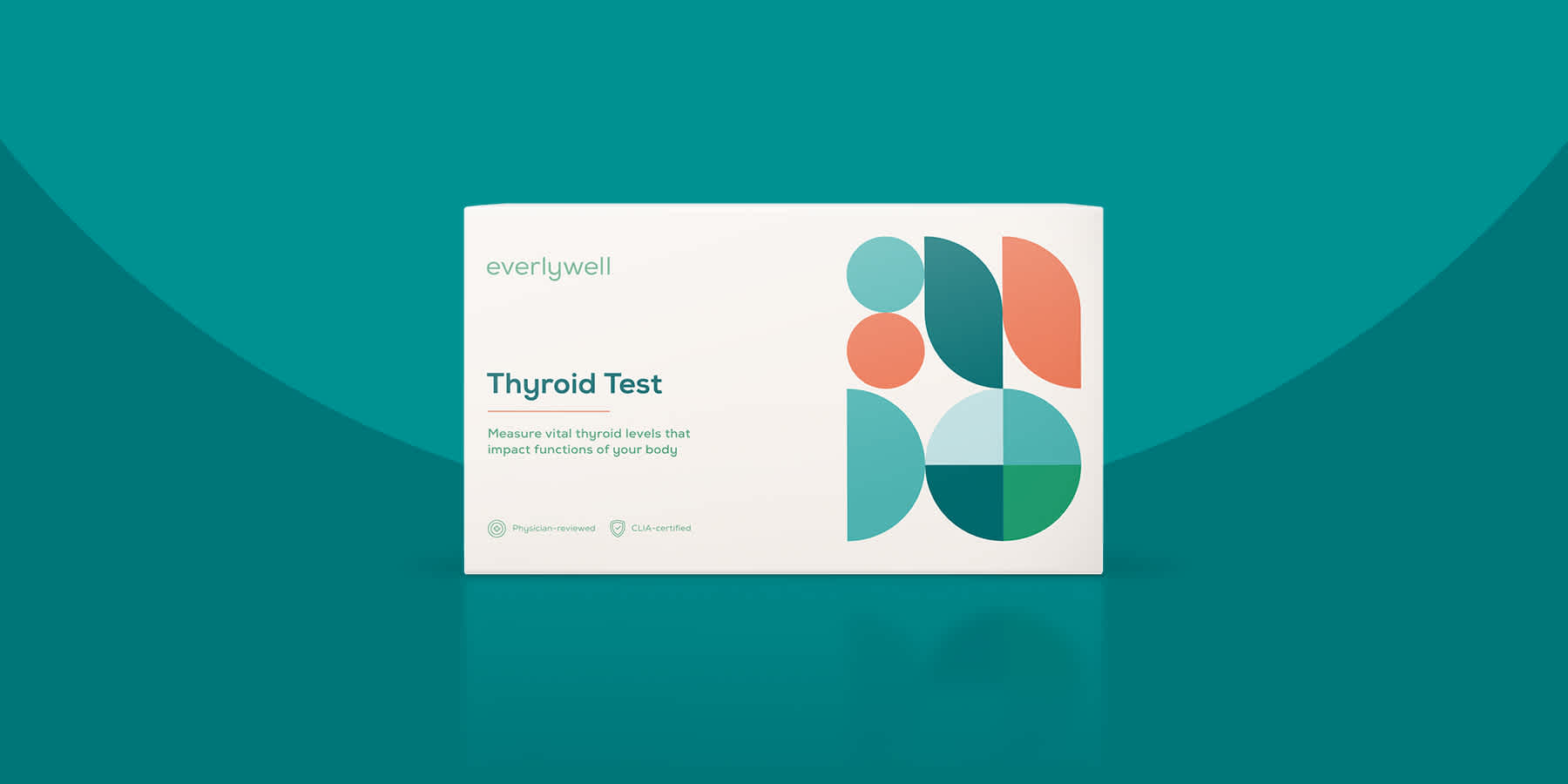
Checking your thyroid levels at home
Before now, there were not many options for checking your thyroid levels at home as, generally, checking these hormone levels required going into a healthcare provider’s office and laboratory due to how the tests were performed. The only alternative option that existed was the occasional test kit on Amazon -- which typically came without a reliable history or information on what to do with your results.
To know what sort of thyroid testing to perform at home, it is important to understand the various types of thyroid tests and the usefulness they provide.
What does the thyroid do?
The biggest function of the thyroid (which is located in the front of the neck) is to control a person’s metabolism. Metabolism can be generally understood as all of the chemical processes of life. A slow metabolism implies these processes are happening more slowly or less than normal. Because less chemical reactions are happening, our body converts food to energy at a slower pace. We feel more fatigued while storing excess fat -- a lose, lose.
While we often write-off our metabolism as something out of our control, it’s actually quite the opposite if we understand what is influencing our metabolism.
Most commonly, it’s having lower levels of thyroid hormone, known as “hypothyroidism.” Thyroid hormone stimulates cells to create energy, including heat. Hypothyroidism therefore causes fatigue, weight gain, and feeling cold. While hypothyroidism comes with many problems, so can having excess thyroid hormone, or “hyperthyroidism.” Hyperthyroidism can cause undesired weight loss, hyperactivity, and feeling hot.
The effects of thyroid dysfunction go beyond how you feel. Because of the lower metabolism of fats and carbohydrates, hypothyroidism greatly increases the risk of high cholesterol, diabetes, and cardiovascular disease. Hypothyroidism has also been associated with depression and is one of the most common medical causes of infertility.
Thyroid dysfunction
While we often write-off our metabolism as something out of our control, it’s actually quite the opposite if we understand what is influencing our metabolism. Most commonly, it’s having lower levels of thyroid hormone, known as “hypothyroidism.” Thyroid hormone stimulates cells to create energy, including heat. Hypothyroidism therefore causes fatigue, weight gain, and feeling cold. While hypothyroidism comes with many problems, so can having excess thyroid hormone, or “hyperthyroidism.” Hyperthyroidism can cause undesired weight loss, hyperactivity, and feeling hot.
The effects of thyroid dysfunction go beyond how you feel. Because of the lower metabolism of fats and carbohydrates, hypothyroidism greatly increases the risk of high cholesterol, diabetes, and cardiovascular disease. Hypothyroidism has also been associated with depression and is one of the most common medical causes of infertility.
About 1 in 10 people have a thyroid disorder
With all of these effects, it is shocking to know that approximately 10% of individuals have a thyroid disorder, with approximately 90% of dysfunction being hypothyroidism. In the United States, that is more than thirty million people! Even more surprising is that approximately half of those with thyroid dysfunction are undiagnosed. That means over fifteen million people are walking around with an untreated disease that increases their risk for diabetes, cardiovascular disease, and depression.
The most unfortunate part for all those living with an undiagnosed thyroid disorder is it is so easy to diagnose and address. A simple thyroid blood test can identify a thyroid disorder.
Thyroid hormones
The brain releases Thyroid-Stimulating Hormone (TSH), which stimulates the thyroid gland in the neck to produce the thyroid hormones, T3 and T4. All of these hormone levels can be tested, with the easiest screening test being TSH, as high levels of thyroid hormone tell the brain to produce less TSH, and low levels tell the brain to produce more. So hyperthyroidism can be diagnosed with a low TSH, and hypothyroidism with a high TSH. Actual levels of thyroid hormone can be used in conjunction with TSH to identify more specific abnormalities.
While thyroid dysfunction can be managed with medication, occasionally there are reversible causes. For example, Selenium and Iodine are essential nutrients for the Thyroid, so correcting low levels can improve thyroid function. Meanwhile, Bromine, a chemical prevalent in foods, plastics, and home goods, can compete with Iodine in the thyroid to disrupt thyroid function. Our body can even produce antibodies that suppress thyroid function, with the most common being known as anti-TPO antibodies.
The Everlywell at-home Thyroid Hormone Test
Everlywell offers all of these tests, as well as other hormones that can influence metabolism. Specifically, Testosterone helps burn fat and produce muscle, but as we age, this declines increasing the prevalence of “low T.” Our most comprehensive at-home thyroid blood test checks your levels of Free T3, Free T4, TSH, and TPO -- the fullest spectrum in thyroid health that we offer.
In addition, Cortisol, the primary stress hormone, can promote the storage of fat -- or when low, due to adrenal fatigue, can also cause decline in energy. Everlywell’s Metabolism panel covers TSH, Testosterone, and Cortisol to understand all of these primary influences.
Additionally, Everlywell’s Men's Health Test, Women’s Fertility Test, and Women's Hormone Test check similar hormones along with other hormones critical to the health of both sexes.
Identifying any issues with your thyroid and metabolism can help optimize your energy, weight, and future health risks.
All of these tests can be done from the convenience of your home and discussed with your healthcare provider. For additional support, Everlywell offers access to telehealth through Virtual Care Visits (including an option for weight management and glp1 weight loss online), which connects you with a qualified healthcare provider based on your availability from the comfort of your home over a remote video call.
Related content
How to test for hypothyroidism